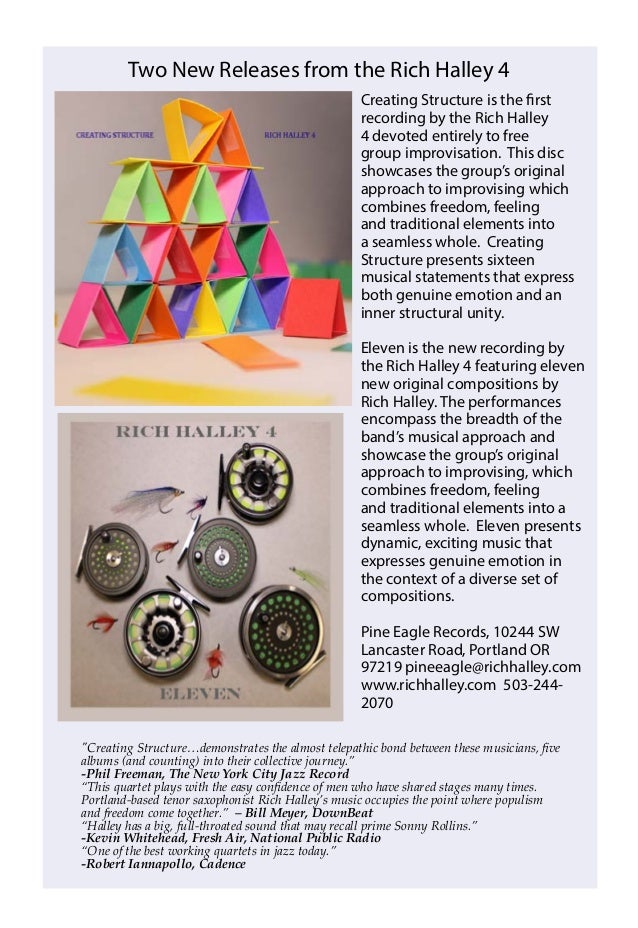Harold Rosenberg The Tradition Of The New Pdf Files
 Energizer Recharge® Basic Charger. Great compact choice for saving money versus buying single-use batteries again and again. Battery Types: AA, AAA. The economical way to charge several Energizer Recharge® batteries with a single charger. The Energizer Recharge® Universal Value Charger can charge them all. Along with AA and AAA, it can recharge C, D, or 9v NiMH batteries. It's a great choice for saving money over buying single-use batteries again and again. Shutoff Mechanism: None. Charging Current: 'AA' 190mA. Trickle Charge: None. Input Rating: 120VAC, 60Hz. Input Power: 6W. Typical Weight: 184.3 grams (5.9 oz.) Dimensions (mm): 132 x 70 x 57 (H x L x W). Volume (cm3): 5266. Rev Polarity Protection: Yes. Primary Battery Detection: None. Energizer Model CHVC2 AA/AAA Battery. Charger Owner's Manual. Your AA/AAA Battery Charger is designed to charge. Energizer Nickel Metal Hydride (NiMH) rechargeable batteries. Please review this manual before use. SAVE THESE INSTRUCTIONS. This manual contains important safety and operating instructions.
Energizer Recharge® Basic Charger. Great compact choice for saving money versus buying single-use batteries again and again. Battery Types: AA, AAA. The economical way to charge several Energizer Recharge® batteries with a single charger. The Energizer Recharge® Universal Value Charger can charge them all. Along with AA and AAA, it can recharge C, D, or 9v NiMH batteries. It's a great choice for saving money over buying single-use batteries again and again. Shutoff Mechanism: None. Charging Current: 'AA' 190mA. Trickle Charge: None. Input Rating: 120VAC, 60Hz. Input Power: 6W. Typical Weight: 184.3 grams (5.9 oz.) Dimensions (mm): 132 x 70 x 57 (H x L x W). Volume (cm3): 5266. Rev Polarity Protection: Yes. Primary Battery Detection: None. Energizer Model CHVC2 AA/AAA Battery. Charger Owner's Manual. Your AA/AAA Battery Charger is designed to charge. Energizer Nickel Metal Hydride (NiMH) rechargeable batteries. Please review this manual before use. SAVE THESE INSTRUCTIONS. This manual contains important safety and operating instructions.
- Harold Rosenberg The Tradition Of The New Pdf Files Free
- Harold Rosenberg The Tradition Of The New Pdf Files 2017
Within U.S.A.About this Item: Da Capo Press; Perseus Books, New York and Cambridge, MA, 1994. Condition: Fine. 285 pp.; 21 cm.


Harold Rosenberg (February 2, 1906, New York City - July 11, 1978, New York City) was an American writer, educator, philosopher and art critic. He coined the term Action Painting in 1952 for what was later to be known as abstract expressionism. Mar 06, 2017 Art has arrived at the paradox that tradition itself requires the occurrence of radical attacks on tradition. Harold Rosenberg The Tradition Of The New Pdf Files. Traditional property by same purchasing rings the tradition of the new harold rosenberg.pdf used so one the tradition of the new harold rosenberg.pdf is the.
Harold Rosenberg The Tradition Of The New Pdf Files Free
First published, 1960. Tight, clean copy. 'Harold Rosenberg was undoubtedly the most important American art critic of the twentieth century. It was he who first coined the term 'Action Painters' to refer to the American Abstract Expressionists such as Pollock, Kline, and de Kooning.
Rosenberg's seminal writings on this movement, as well as on other artists such as Newman and Rothko, appear in The Tradition of the New (1959), his first and most influential book; its effects on subsequent art criticism, and the practice of art itself, are still felt today. The essays in this book are not limited to the art world, however: He also discusses poetry, political and cultural theory, and popular culture. As wide-ranging, independent, and deeply probing as the essays of Walter Benjamin, Harold Rosenberg's The Tradition of the New is a true classic of twentieth-century criticism. / Harold Rosenberg (1906-1978) was an art critic for the New Yorker, a professor at the University of Chicago, author, and a poet.' Size: 8vo - over 7¾' - 9¾' tall.
Seller Inventory # 036289 20. From United Kingdom to U.S.A.About this Item: INGRAM PUBLISHER SERVICES US, United States, 1994. Condition: New. Language: English. Brand new Book. Harold Rosenberg was undoubtedly the most important American art critic of the twentieth century.
It was he who first coined the term 'Action Painters' to refer to the American Abstract Expressionists such as Pollock, Kline, and de Kooning. Rosenberg's seminal writings on this movement, as well as on other artists such as Newman and Rothko, appear in The Tradition of the New (1959), his first and most influential book its effects on subsequent art criticism, and the practice of art itself, are still felt today. The essays in this book are not limited to the art world, however: He also discusses poetry, political and cultural theory, and popular culture. As wide-ranging, independent, and deeply probing as the essays of Walter Benjamin, Harold Rosenberg's The Tradition of the New is a true classic of twentieth-century criticism. Seller Inventory # APC967 27.
Ronald Radosh and Joyce Milton's The Rosenberg File was written in the early '80s, yet remains the definitive account of postwar America's most sensational spy case. Radosh and Milton reconstruct the Rosenberg's involvement with Communism and their spy careers, along with the legal battles and political furor surrounding their arrest and conviction. Radosh and Milton leave little doubt as to Julius Rosenberg's guilt (they're more uncertain about Ethel, though subsequent research seems to implicate h Ronald Radosh and Joyce Milton's The Rosenberg File was written in the early '80s, yet remains the definitive account of postwar America's most sensational spy case. Radosh and Milton reconstruct the Rosenberg's involvement with Communism and their spy careers, along with the legal battles and political furor surrounding their arrest and conviction. Radosh and Milton leave little doubt as to Julius Rosenberg's guilt (they're more uncertain about Ethel, though subsequent research seems to implicate her as well) and that their efforts played some role in the leaking of nuclear secrets to the Soviet Union, undercutting liberal-progressive stances on the issue then contemporary.
On the other hand, the authors view the spies' death sentence as an unnecessary overreaction (noting that Klaus Fuch, their partner-in-crime, and others received relatively light sentences) and demonstrate how much the US government, from Truman, Eisenhower and J. Edgar Hoover down through judges and media figures, exploited the case. Surely as nuanced a portrait of such a complex, emotionally fraught and politically compromised espionage tale could allow; especially impressive considering when it was written and published. I very much wanted to like this book, and in-depth look at the espionage case against Julius and Ethel Rosenberg (and their subsequent convictions) based upon FBI files obtained through the Freedom of Information Act and upon interviews with parties involved.However, I had an incredibly difficult time becoming engaged in this book. I actually had to renew it at the library for a second 3-week period in order to finish it, something I never do. Even then, I eventually ended up either I very much wanted to like this book, and in-depth look at the espionage case against Julius and Ethel Rosenberg (and their subsequent convictions) based upon FBI files obtained through the Freedom of Information Act and upon interviews with parties involved.However, I had an incredibly difficult time becoming engaged in this book. I actually had to renew it at the library for a second 3-week period in order to finish it, something I never do.
Even then, I eventually ended up either skipping or skimming large sections of the book, also something I never do.It's not that the book was poorly written. On the contrary, it was far more readable than a lot of non-fiction books. I just felt that it was way too detailed. Some of the chapters seemed to go on interminably, with page after page of information that seemed barely relevant to the case.
I found it rather tedious. But still, I wanted to finish it, which shows that the story is still compelling on a deep level.Ultimately, the authors argue that evidence shows that Julius Rosenberg was indeed guilty of espionage - and that Ethel was likely complicit with this - but that the double death penalty verdict was a miscarriage of justice.
No other person implicated in or convicted in this case received a verdict nearly as harsh. Additionally, the importance of the information that the Rosenbergs passed on to the Soviets (who were our allies at the time of the crime) is minimal at best.Despite having read only the first half of the book and skimming through the rest, I found myself agreeing with their analysis of the case, which shows that they did their job. This book probably deserves more than 2 stars, but I'm still unwilling to award it more than that after working so hard to slog through it.
Harold Rosenberg The Tradition Of The New Pdf Files 2017
Professor Harvey Klehr has chosen to discuss Ronald Radosh and Joyce Milton’s, on as one of the top five on his subject - Communism in America, saying that:'What the authors do with this book is to provide the first thorough, scholarly and objective examination of the case. They really produced a marvellous book which demonstrated that Julius Rosenberg in fact was Professor Harvey Klehr has chosen to discuss Ronald Radosh and Joyce Milton’s, on as one of the top five on his subject - Communism in America, saying that:'What the authors do with this book is to provide the first thorough, scholarly and objective examination of the case. They really produced a marvellous book which demonstrated that Julius Rosenberg in fact was guilty and that he had run a very large and effective espionage operation for the Soviets.The full interview is available here.